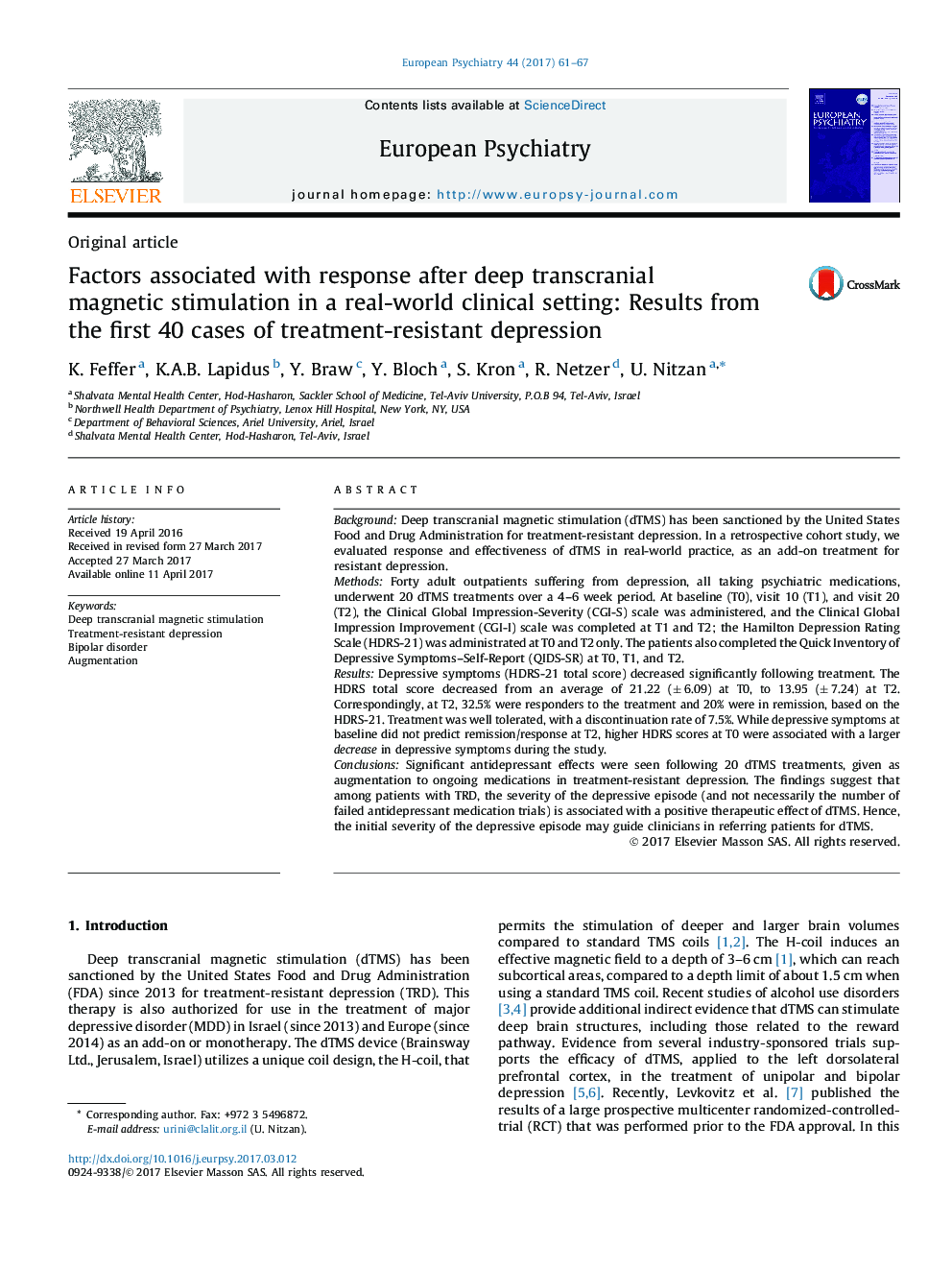| Article ID | Journal | Published Year | Pages | File Type |
|---|---|---|---|---|
| 5721391 | European Psychiatry | 2017 | 7 Pages |
BackgroundDeep transcranial magnetic stimulation (dTMS) has been sanctioned by the United States Food and Drug Administration for treatment-resistant depression. In a retrospective cohort study, we evaluated response and effectiveness of dTMS in real-world practice, as an add-on treatment for resistant depression.MethodsForty adult outpatients suffering from depression, all taking psychiatric medications, underwent 20 dTMS treatments over a 4-6 week period. At baseline (T0), visit 10 (T1), and visit 20 (T2), the Clinical Global Impression-Severity (CGI-S) scale was administered, and the Clinical Global Impression Improvement (CGI-I) scale was completed at T1 and T2; the Hamilton Depression Rating Scale (HDRS-21) was administrated at T0 and T2 only. The patients also completed the Quick Inventory of Depressive Symptoms-Self-Report (QIDS-SR) at T0, T1, and T2.ResultsDepressive symptoms (HDRS-21 total score) decreased significantly following treatment. The HDRS total score decreased from an average of 21.22 (± 6.09) at T0, to 13.95 (± 7.24) at T2. Correspondingly, at T2, 32.5% were responders to the treatment and 20% were in remission, based on the HDRS-21. Treatment was well tolerated, with a discontinuation rate of 7.5%. While depressive symptoms at baseline did not predict remission/response at T2, higher HDRS scores at T0 were associated with a larger decrease in depressive symptoms during the study.ConclusionsSignificant antidepressant effects were seen following 20 dTMS treatments, given as augmentation to ongoing medications in treatment-resistant depression. The findings suggest that among patients with TRD, the severity of the depressive episode (and not necessarily the number of failed antidepressant medication trials) is associated with a positive therapeutic effect of dTMS. Hence, the initial severity of the depressive episode may guide clinicians in referring patients for dTMS.
